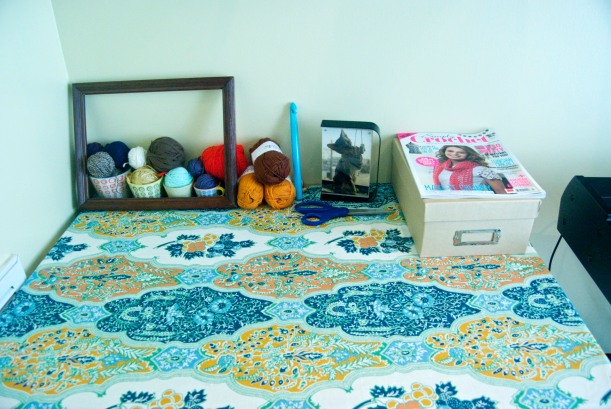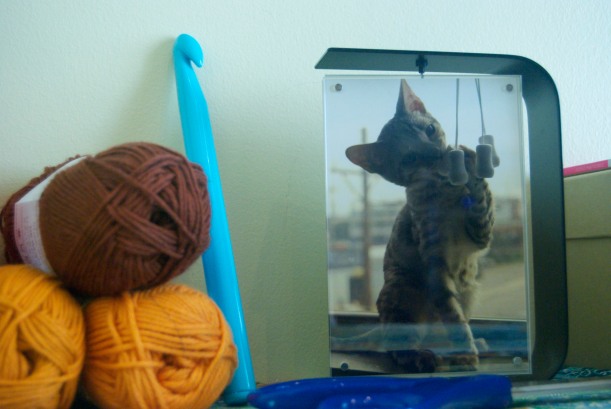
I write this post for those who are graduate counseling / social work students, those thinking about pursuing a degree in counseling, and/or are unemployed in the mental health field.
I had mentioned in previous posts that I was an “aspiring therapist.” That statement actually meant I did not have a job was unemployed. Eek…that word stings to type it or sometimes even say it out loud. It’s a scary word that can transport many people to a very unnerving time in their lives; it definitely does that for me.
After almost a year of frustration, tears, denial, small wins, moves, resiliency, and Unemployment, I can finally say that I do indeed have a job! Woo!
While I have only had my job for a few weeks, I wanted to write a piece on the journey while the whole process is still fresh in my mind. If you are unemployed, or know someone who is (in the mental health field or otherwise), please do not lose hope in the search.
I hope my story can help someone – as I needed more help than I was aware during my trip through complex land of unemployment.
Being unemployed in the mental health field: My own experience.
There can be many challenges for those in the mental health field upon graduating from a master’s program. I exited graduate school quite starry eyed about what I was going to do with my shiny degree. (Also common in the college graduate population as well. ) However, as time passed those stars turned to question marks. Throw in a few personal crises, subconscious ambivalence about adulthood, and an incessant clinging to the idea the “right” job would come along, and things get very difficult – very fast. If you also take into consideration the hoops one must jump through to become licensed as a Licensed Professional Counselor (LPC) or Licensed Clinical Social Worker (LCSW), things can feel even stickier.
We do not tend to have candid conversations about life post-graduate school. Many universities and master’s programs just do not discuss it. The unwritten rule seems to be that programs will provide you with the tools you need to succeed and it is up to you to use them to your advantage. All well and good, but that ideology can overlook the fact that graduate students come in all different ages and have equally different motivations for being there. My program alone had students ranging from age 22 to 50+. Some were changing their careers, some were getting a second master’s degree, and many went straight from undergrad to graduate school in hopes of coming out as a therapist. I was not the only one who searched long and hard for a job. In the face of the economic downturn and the demands of modern living costs, some even left the realm of counseling to pursue jobs that met such needs.
This makes me upset because – though an entirely other lengthy conversation- our current system does not seem to value ($$$) therapists at the master’s level as compared to more medically oriented disciplines of equal education level, or those who decide to get that Ph.D. So we are not only losing great therapists because of this, but we are also setting up students for the possibility of becoming resentful of the field in general. There is a need out there for therapists – I see it every day – but our system does not have as many open spots as it should. A fundamental shift needs to occur in the field public understanding of the value of master’s level therapist’s – but that will be another post.
Anyway, not having the conversation about what the word “career” means to students and the realistic options they will have upon matriculation, is doing them a disservice. Programs should not assume student’s realize all the intricacies of the field, especially if they are switching careers. There are students in programs all over the country who do not have realistic expectations of what they would do when unleashed into the world – myself included.
Staring Unemployment in the Eyes

As the months ticked on post-graduation, I fought against being just another unemployed millennial, (which the media loves to write about) who was not ready for the challenges of the “real world.” But at the same time, those authors who over-intellectualized and made assumptions about the characteristics of my generation were winning over my psyche. Was I being too entitled in my applications/cover letters? Were prospective employers afraid to hire me because I had no “experience” outside of internships?
Was I scared? Yes. Did I feel like it was safe to reach out to others and openly talk about my struggles? No.
My program never really talked about the realities of finding work if you have minimal experience outside of internships. They definitely did not talk about the seemingly cruel way employers use electronic applications. I threw countless cover letter’s & applications into the black hole of the internet to no avail. They say “always follow up,” but that is hard to do if you don’t have a department to call or HR personnel who are dismissive/annoyed of your attempts to do so. Friends and family, many of whom were unfamiliar with the hurdles I faced as I searched for jobs in the mental health field, supported me as much as they could as I struggled. Even with the support, it still took a toll on my mental health.
I could keep going on, but if you are in this situation, you know how hard it is. Trust me, you are not alone.
It was only after grieving the loss of the person/job I thought I would be or have – for real – that I was able to do what I needed to do. This process was not spelled out for me and it was not graceful. It was messy. I was distraught.
I had lost myself amidst the denial of my situation and placed most of the blame on external sources. Doing this largely rendering myself powerless. It was time to accept that I may or may not end up in my ideal job. Fighting against my reality was costing me. I needed to get out there because I had worked hard for that master’s degree (dammit) and I had something to contribute to this world. While it took me longer than expected to believe that, I eventually did. I was not going to allow the world to beat me down any longer.
So what was the answer to my unemployment problem?
You probably know it already…….NETWORKING.
You HAVE to do it. I was the poster child for not wanting to network. It was terrifying and vulnerable and scary and…you know. I attended trainings, met with professors, and took extra classes to add to my resume. But, what surprisingly finally landed me a job was a COLD EMAIL.
One day I put together a list of all the LPC’s in my area and began emailing them about my dilemma; a chicken and the egg sort of deal. I needed a job, but had no experience outside of school. My internships were high quality, but no one would give me a chance because employers seemed to only want those with 2-3 yrs of experience. I needed to get in front of people, so I reached out to various LPC’s and asked them for a few minutes of their time (Informational interviewing 101). All of the good therapist’s I knew were not afraid to get into deep conversations, so I stopped putting so much pressure on myself to be uber-sterile in my emails; I was struggling and I needed help. I thought to myself: “You will be vulnerable and authentic. If these therapists do not respond with empathy then maybe you should switch fields anyway.”
It just so happened that the first LPC I emailed ended up emailing me back an amazingly empathetic email. She told me how she struggled too and how she had many “great female role-models” who helped her along the way. I began to cry as I read it. Why had I waited so long??? I ended up meeting with her and she knew someone – who knew someone – who knew someone who needed a master’s-level therapist. I landed the interview and the rest is history.
Everyone has their own path, and this is/was mine. Be aware: You may try to do it just like I did and you may not get a positive response. You must be flexible and you must be resilient. You may need to email 10 more people than I did, you may have to get out of your house more and dive into additional trainings and networking events, or you may even need to move to a new city. In this competitive job market, there is less and less room for those who are naive to the job hunting process. I can say this because I was one of those people.
My new job is working with those in crisis; an area that I have little experience with. However, I am so open to learning and stepping outside of my comfort zone. I’ve realized that you will not be able to maintain that zone of comfort very much in this field. I think that if you are going to be a well-rounded therapist you should really have such crisis training. In the few days that I’ve worked so far, I have learned SO much that I wish I would have known in my internships. Many of the entry-level jobs for master’s level counselor’s / social workers are in crisis-related positions. Don’t let it freak you out if you think you can’t handle it – You Can Do It. If you think you are a good therapist, then those in crisis are the people who need you the most.

Here are some tips that helped me during my job search (not in order of importance):
* If you’ve skipped down to this section, and you are unemployed, please read the section above. You will not land a mental health job by simply googling tips/strategies – you must think critically about your situation.
1. Listen to TED Talks while you are in the shower. 
TED Talks are amazing little (10-20 minute presentations) gems that I discovered during my unemployment. TED (Technology, Entertainment, Design) is a non-profit that is dedicated to the mantra “Ideas Worth Spreading.” These helped to keep my mind sharp when it felt like mush.
Here are my favorites:
Meg Jay- Why 20 is not the new 30
Andrew Soloman – Love No Matter What
Amy Cuddy – Your Body Language Shapes Who You Are
Susan Cain – The Power of Introverts
Barry Schwartz – Our Loss of Wisdom
2. Get your own therapist. Therapists need therapists. It’s a fact, I swear. Any therapist who tells you otherwise probably should not be a therapist. Graduate school can bestow a whole new way of thinking about yourself and the world around you. Your relationships can change, and you may become hyperaware of things you would did not notice prior to graduate school. It is helpful to talk to a therapist about the struggle. They have likely been there too at some point.
3. Allow yourself to have bad days. I fought so hard against those bad days. My bad days were days when no counseling jobs were posted, I didn’t leave the house, and Netflix streamed Mad Men all day. Everyone’s bad days look different. They will happen, don’t beat yourself up.
4. Cry. You are human.
5. Don’t stop thinking critically about yourself and the world around you. Listen to TED Talks, read books, subscribe to interesting blogs about mental health/counseling, if you still have it – access your universities access to all those scholarly journals, etc. Don’t lose your love of learning.
6. Start a blog! I can confidently say this blog would not have happened if it were not for being unemployed. I picked up a hobby (crocheting), it made me happy, and I missed writing. I took to WordPress and somehow finagled myself a website. It increased my self-efficacy and gave my days more structure. I’ve really missed it since getting a job and have realized that it is not actually just a time filler; it allowed me to discover a new network of people, a new hobby, and even allowed me to add WordPress to my resume!
7. Teach yourself something. For me it was crocheting and blogging. Google is an amazing thing, harness it’s energy for your benefit.
8. Leave the house. Even if it’s at Starbucks to meet your car insurance woman – get out of the house. Cocooning yourself does not do you ANY good. You are a therapist – you know this. Go.
9. Attend those trainings. Reach out to your fellow counselor friends or local non-profits to ask about trainings. They happen all of the time! They are great ways to meet new people and show your prospective employers that you are dedicated to being the best therapist you can be for your future clients.
10. Maintain Balance. It may sound cliche, but it is a truth in the unemployment world. You must balance your thoughts, your behaviors, and your time. For me, I had to intentionally tell myself that my identity was MORE than simply being unemployed. I was more than my resume and I was more than the box employers seemed to be putting me in. Yes- I needed that job and the money that came with it. But, I realized that cynicism was beginning to win because I was ignoring my worth in the other realms of my life. When I realized that, I was able to be more confident when speaking to others about my situation.
You can do this. Good Luck! ❤















